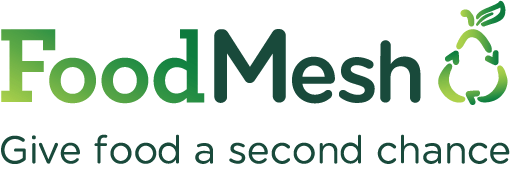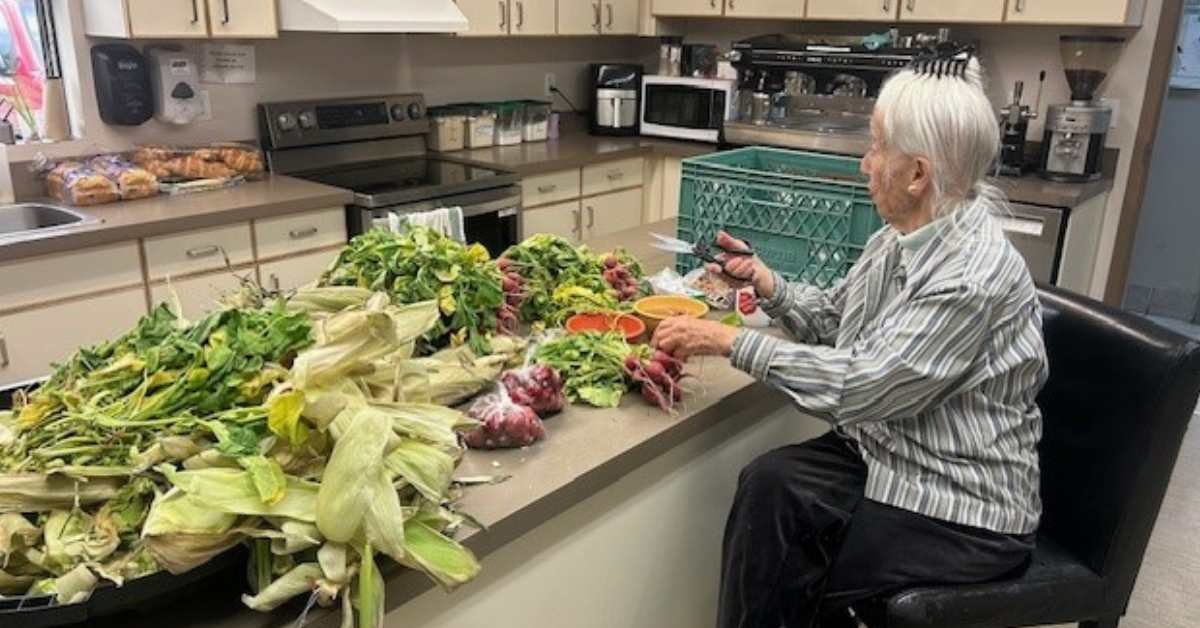02 Jul Safeway Vernon partners with FoodMesh to significantly reduce its food waste and support the community
According to research, grocery retailers are responsible for 12% of food waste in Canada. With food loss and waste being among the main causes of climate change, and the impact of climate change becoming increasingly evident, the time for food businesses to act on reducing their food waste is now. This is a responsibility that many retailers in Canada, including Sobeys, is taking extremely seriously.

“From the moment food is made, picked, or cut, it starts to perish,” explains Stan Parker, Store Manager at Sobeys’ Safeway store in Vernon, BC. “Our responsibility as a grocery store is to minimize the amount of that food ending up in landfills.”
Which is why Safeway in Vernon turned to FoodMesh to help them divert the unsold food it wasn’t able to redistribute through its existing donation program, so it didn’t end up in waste streams. Last year, FoodMesh launched its managed organic waste program at the Vernon store and built a network of local hobby farmers to collect its inedible surplus food, so they could use it to feed their animals. Today, the store donates food to farmers four days a week, with plans to add additional days to the schedule.
Stan has some experience with food recovery from his days working for Safeway at Fort St. John in northeastern BC, where they had a food recovery program in place. “I was well aware of the many benefits of food recovery,” he recalls. “So when I heard about FoodMesh, I was very keen to be part of it.”

Significant reduction in store’s food waste
“There is a marked difference in our store’s overall waste output since we started working with FoodMesh,” Stan says. “Before, our organic waste bins were being collected three days a week, and we were looking to add more days because they were filling up so fast. ”Now that the store is sharing much of that organic ‘waste’ with local farmers, it has reduced its organic waste hauling to two days, and is looking to drop it even further. “There is so little going into our compost bin now, that it’s almost irrelevant,” he says.
“There is a marked difference in our store’s overall waste output since we started working with FoodMesh”
– Stan Parker, Store Manager at Safeway Vernon
Staff and customer engagement
The program has also had a positive effect on Safeway Vernon’s staff and customers. Stan reports that employees feel a sense of pride knowing their efforts are making a difference. “Seeing the impact of food insecurity in our community, and knowing we’re finding better ways to use that food, boosts morale,” he says.
Customers, too, have responded positively. They appreciate knowing the store is committed to reducing waste and supporting local needs. “The customer response has always been really encouraging. They are relieved to know the food is not going into the garbage but helping people in our community,” Stan shares.
Cost savings
While Safeway’s primary motivation for diverting its unsold food is ecological and social, the financial advantages cannot be ignored. The reduced need for organic waste pickups—from three times a week to potentially once—means the store is spending less on its waste hauling fees.

Complying with waste disposal regulation
Safeway Vernon’s proactive approach aligns seamlessly with the regional district’s Commercial Food Waste Disposal Regulation, which came into effect in July, 2022. This regulation mandates large generators of food waste to divert organic materials from landfills to meet the region’s solid waste management goals. By partnering with FoodMesh, Safeway Vernon not only complies with these regulations but sets a benchmark for other retailers to follow.
Supporting local community
Of course, it’s not just Safeway that sees the benefits of this program. The farmers who receive the food are also reaping the rewards. “They are grateful not to have to purchase food for their animals, and have peace of mind that they have a consistent availability of food for their farms,” recalls Stan.

Promoting a circular economy
While the benefits of this food recovery program are multifaceted, for Stan, the most rewarding aspect is contributing to a circular economy. As Stan puts it, “By diverting food away from landfill, we reduce greenhouse gas emissions, while benefiting people in our community.”
He continues: “We know the cost of goods is radically impacted by what’s going on in our world right now. Anything we can do to make a difference in our food supply chain, to help keep that process working well and help ensure the people producing our food can still afford to do what they do – we’re glad to be a part of.”
Potential cost savings for customers
“Whether it’s the cost of fuel, transportation… farmers’ costs are rising just like everyone else’s. Ultimately, we believe that programs like FoodMesh could even impact the price of groceries. If we can find ways to improve efficiencies and help ensure that those who produce the groceries can lower their costs, then our costs are lowered, which we hope to translate into lowering the costs for our customers.”

Opportunity for other retailers to divert their unsold food
“I’d recommend FoodMesh to any company. I believe it’s well run, and it creates an impact both internally and externally in our community. I would recommend it to any retailer who has the opportunity to translate food waste into food recovery,” says Stan.
Thanks to the Regional District of North Okanagan’s ReTHINK grant, FoodMesh is building and supporting a food recovery network in the region, designed to connect businesses that have surplus food quickly and efficiently to those in the region who need it. As a result, FoodMesh’s food recovery services are funded for businesses in the North Okanagan.
“I’d recommend FoodMesh to any company. I believe it’s well run, and it creates an impact both internally and externally in our community. I would recommend it to any retailer who has the opportunity to translate food waste into food recovery”
– Stan Parker, Store Manager at Safeway Vernon
“We can help organizations divert as much as 90% of their surplus food away from waste streams. Because diverting unsold food to charity and farmers emits so much less greenhouse gas emissions than sending it to waste streams, our customers have been able to reduce their C02e emissions seven-fold as a result of our food recovery program, and reduce their waste hauling costs by as much as 40%,” explains Diana Scott, who oversees the North Okanagan Food Recovery Network.
Start reducing your organic waste today
Contact us to discuss how we can help you reduce your food waste footprint, just as we have with Safeway Vernon. Whether your surplus food is edible or inedible, we will find an organization to put that food to good use, quickly, easily and safely.
Written by Megan Czerpak, Head of Communications at FoodMesh
Related stories
How Save-On-Foods surpassed its food waste reduction goals and set a new standard for sustainability in the grocery industry
And supports over 3,000 hunger-relief organizations and hobby farmers in the process.
Over 210,000 kg of food waste saved from North Okanagan landfills
FoodMesh is building a food recovery network in the North Okanagan, in an effort to reduce food waste in the region. Castanet reports.
Salvation Army Vernon offers a house of hope for North Okanagan residents
Find out how this extraordinary charity turns rescued food into connections and support for its clientele
How Save-On-Foods is helping North Vancouver farm animals live long and healthy lives
Maplewood Farm's 76 animals now get to enjoy fresh produce from its local Save-On-Foods, thanks to this new partnership






